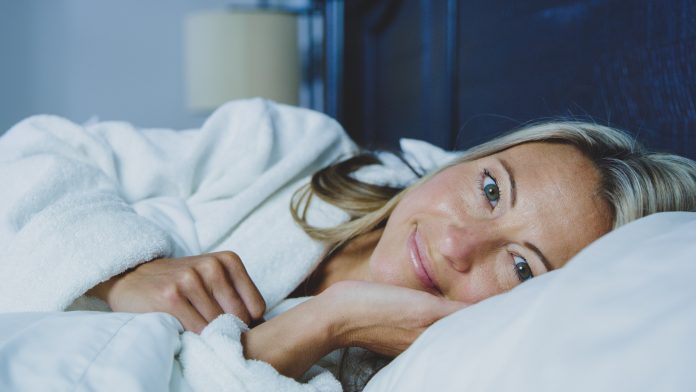As we age, getting to sleep and staying asleep can get harder. Anything from stress to health and physical ailments can make restful sleep more difficult. Read about 5 strategies and techniques for a more restful slumber.
1. Have the Right Sleep Environment
Make sure your sleep environment sets you up for good sleep. Put up blinds and curtains to keep out early morning light. For light sleepers sensitive to sound disruptions, invest in a fan or white noise device. The room temperature at night can also contribute to good or poor quality sleep. Some need the bedroom temperature kept cool while others need it warmer during the night.
Keep the TV out of your bedroom. Essentially, you are teaching your brain to associate the bedroom with sleep, not entertainment. Also important to have a bed and mattress that fit your sleep needs. Go to tips on sleeping better to find a mattress that fits your sleep needs.
2. Stick to a Consistent Routine
Sticking to a consistent bedtime routine is important for sleep hygiene. Keep the same sleep schedule every night. Staying up till midnight one night and then going to bed at 9 p.m. the next night can throw off your sleep schedule.
Have a nightly routine that helps you wind down for the evening. Take a bath or meditate to relax both your mind and body. Turn off all devices and electronics an hour or so before bed. Opt for a book over reading something on your phone or computer. The blue light from electronics can cause disruptions in sleep.
3. Get Moving and Get Some Sunshine
Physical activity during the day promotes better sleep. Physical activity helps you to fall asleep quicker and reduces waking up during the night. It also improves the quality of your sleep. Schedule a regular daily walk, plan Saturday bike rides with the family or do a low-impact YouTube exercise video on rainy or cold days. Anything to get you moving and a little sweaty.
Getting outdoors when it is sunny is even better. Sunshine is great for vitamin D and it also programs your brain to remember that light equals activity and dark equals sleep and relaxation. Also important to not exercise too close to bedtime. Do it several hours before.
4. Avoid Liquids, Heavy Meals and Naps
Many people like to have a relaxing cup of tea before bed. The relaxation part helps with sleep, but having liquids close to bedtime can lead to waking up multiple times in the night for bathroom runs. For those attached to their evening tea, make sure to drink it a couple of hours before bed and make sure it is caffeine-free.
Also important to avoid alcohol and food too close to bedtime. Alcohol is a sleep disrupter. Don’t be fooled by how it can make you sleepy because it can also negatively affect sleep quality. Eating before bedtime can also interfere with sleep. Plan out meals for earlier in the evening, and if hungry before bed, eat a light and healthy snack.
Another thing to avoid is long naps during the day. Naps are very tempting, especially when you didn’t sleep well the night before. Meditation is a better way to rejuvenate. Find a comfortable chair in your home, relax your body, focus on your breath and enjoy a little quiet time.
5. Get Up and Move Around
After your relaxing evening routine, hopefully, you can easily fall asleep. Unfortunately, even after doing everything possible to get to bed, you may still find yourself lying awake, staring at the ceiling. Lying in bed can add to the anxiety of not being able to get to sleep. Instead, after about 20 minutes of not being able to fall asleep, get out of bed and do some gentle yoga poses or meditation.
Difficulty sleeping can be a byproduct of getting older. However, there are strategies and techniques that can improve your sleep. Try adjusting your sleep environment so that it better suits you, or make sure to avoid liquids, heavy meals and exercise before bedtime. Figure out what works for you so you can start getting a better night’s rest.
























